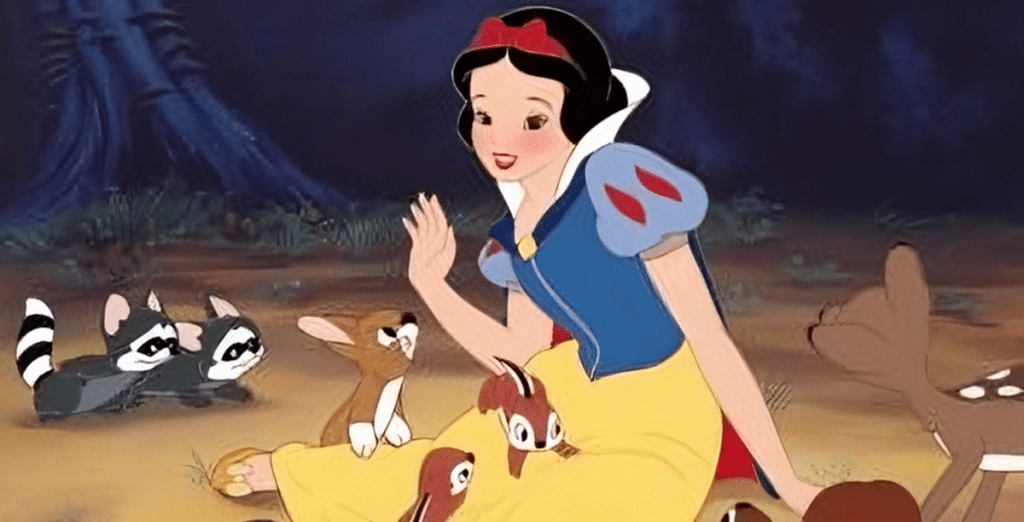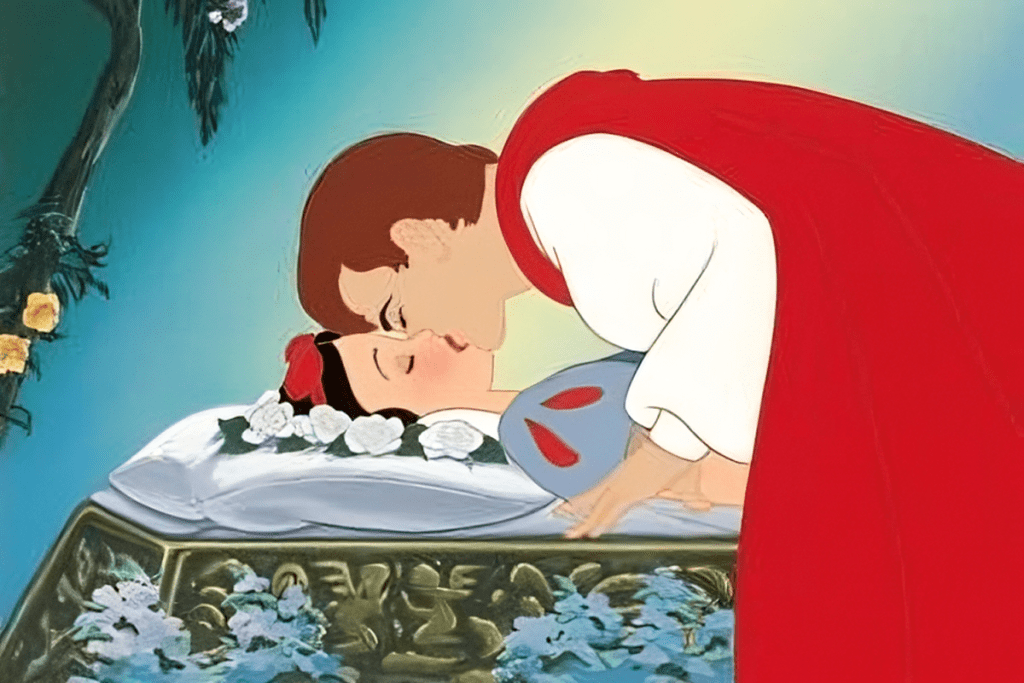Snow White and the Seven Dwarfs, Disney’s first full-length animated feature, has enchanted audiences for generations since its release in 1937. As a beloved cultural artifact, the film has been recognized by the United States Library of Congress as “culturally, historically, or aesthetically significant.” However, as society evolves, so too does the lens through which we view stories from the past. Recently, a heated debate has emerged, urging Disney to update the plot of Snow White to better align with modern values, particularly concerning the concept of consent.

The controversy is primarily focused on one of the movie’s most famous scenes: the kiss that awakens Snow White from her cursed sleep. While this scene has long been seen as a romantic climax, modern audiences are increasingly viewing it through a critical lens. The issue? Snow White is unconscious, unable to consent to the kiss, which some argue promotes a troubling message about consent and autonomy.
Journalist and broadcaster Nichi Hodgson has been vocal in her criticism, stating that Disney added the kiss, which was not part of the original Grimm story. Hodgson argues that Disney, as a powerful entity with significant influence over young audiences, has a moral duty to promote ethical storytelling. “Disney has a moral duty. They can be an ethical business if they want to be. They make billions every year from their films. Children watch their films from a very young age, and these are some of the first stories they encounter,” Hodgson remarked.
The discussion has gained traction, with celebrities like Kristen Bell adding their voices to the mix. Bell, known for her role in Disney’s Frozen, revealed in an interview with Parents magazine that she discusses the scene with her children, questioning the ethics of the prince’s actions. “Don’t you think it’s weird that the prince kisses Snow White without her permission? Because you cannot kiss someone if they’re sleeping!” Bell pointed out, emphasizing the importance of teaching children about consent from an early age.
As with many debates that touch on cherished childhood memories, public opinion is sharply divided. Some argue that the criticism is misplaced and that the scene should be viewed within the context of a fairytale, not through the lens of modern ethics. Others, however, believe that revisiting and revising such narratives is necessary to reflect evolving social norms.

People want the childhood classic to be updated to represent modern-day times. Credit: Disney
Disney has yet to make an official statement regarding potential changes to the Snow White narrative. However, the debate has intensified following the recent revamp of Disneyland’s Snow White Enchanted Wish ride, which now concludes with the prince kissing Snow White. This update sparked renewed criticism, with reviewers questioning why Disney would reinforce a scene that has come under fire.
Adding fuel to the fire, Rachel Zegler, who will portray Snow White in the upcoming 2025 live-action remake, has hinted at significant changes to the story. In a candid interview, Zegler referred to the original relationship between Snow White and the prince as “weird,” suggesting that the new version will focus less on romance and more on Snow White’s independence.
The controversy surrounding Snow White highlights a broader cultural shift towards prioritizing consent in all aspects of life, including entertainment. As stories are passed down through generations, they reflect the values and beliefs of their time. However, as society’s understanding of issues like consent evolves, so too should the stories we tell, especially those aimed at impressionable young audiences.

Disney faces the challenging task of balancing the preservation of beloved classics with the need to evolve in response to societal changes. While some argue that altering a classic tale diminishes its original charm, others believe that updating stories like Snow White is essential to ensure they align with modern values and educate audiences on critical issues like consent.
The debate over Snow White and the issue of “kissing without consent” is a reflection of a larger cultural conversation about the ethics of storytelling. As Disney continues to influence generations with its tales, the company must consider how its narratives impact modern viewers. Whether or not Snow White will undergo a significant plot change remains to be seen, but the discussion it has sparked is likely to continue, challenging us to rethink how we interpret and update the stories of our past.
The controversy surrounding Disney’s Snow White has reignited a critical discussion about the importance of consent in storytelling. As society’s understanding of ethical behavior evolves, so too must the stories we tell, especially those that shape the values and beliefs of young audiences. Disney, as a powerful cultural institution, faces the delicate balance of preserving beloved classics while adapting its narratives to align with modern sensibilities. Whether or not the upcoming Snow White remake will significantly alter the original storyline remains to be seen, but the ongoing debate is a testament to the enduring relevance of this timeless tale and the necessity of continuously re-evaluating the messages we choose to convey through the stories we cherish.


